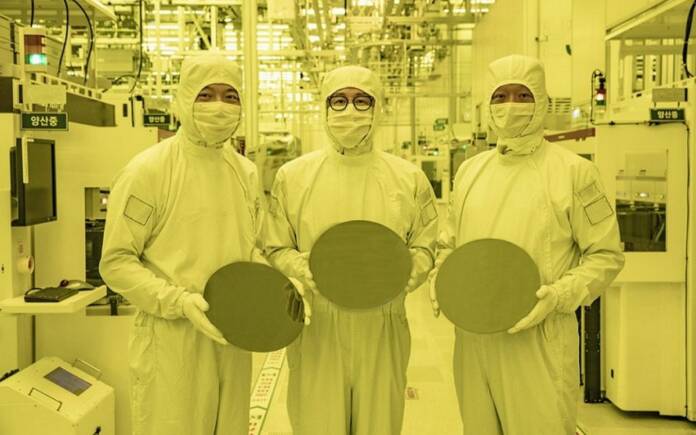Samsung has said it plans to start manufacturing its first 2-nanometer etched chips for smartphones and other mobile devices by 2025, but an even bigger goal awaits us in 2027.

The South Korean tech giant announced big news for the future of smartphones at the Samsung Foundry Forum held in San Jose, California. Samsung will start mass-producing 2nm chips for the mobile market in 2025.
As a reminder, the company presented its first chip engraved in 3 nm only a few months ago, and we should not find them in our smartphones before the end of next year. By then, its competitor TSMC should deliver its first A17 chips in 3 nm in the next iPhone 15 from Apple, which has managed to monopolize a good part of the production.
Samsung aims for 1.4 nm engraving in 4 years
While the company’s SF2 (2nm) production node is on track for 2025, its successor SF1.4 (1.4 nm) should be available in 2027. SF2 technology should offer 25% higher energy efficiency (at equal frequency and complexity), a 12% increase in performance (at equal power and complexity) and a 5% decrease in area compared to SF3but Samsung has yet to specify what to expect from SF1.4.
After arriving in our smartphones in 2025, Samsung said it would offer 2nm chips for high-performance computing applications in 2026, then for the automotive industry in 2027. For example, it is likely that the Teslas that will be released during this period will be equipped with in-house Tesla chips, manufactured by Samsung.
In 2025, Samsung is also expected to offer contract production of 8-inch gallium nitride (GaN) power management chips, as well as 5nm RF chips. It will also start offering 8nm and 14nm RF chips for automotive applications. In the same year, Samsung will also start producing 5nm radio frequency chips to support 6G network technology. The RF chips will be manufactured using Samsung’s 5nm process and will offer 40% higher power efficiency than previous 14nm RF chips.













